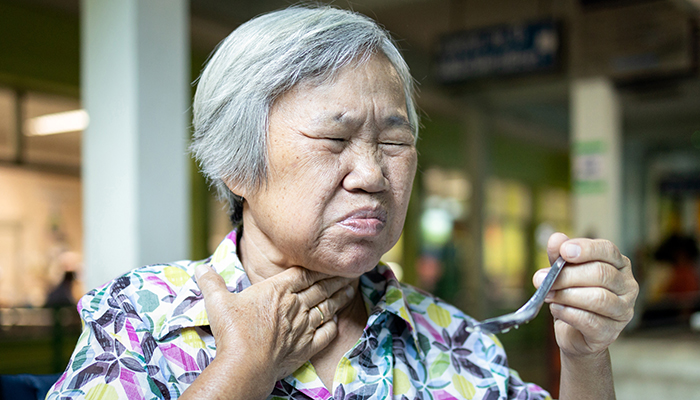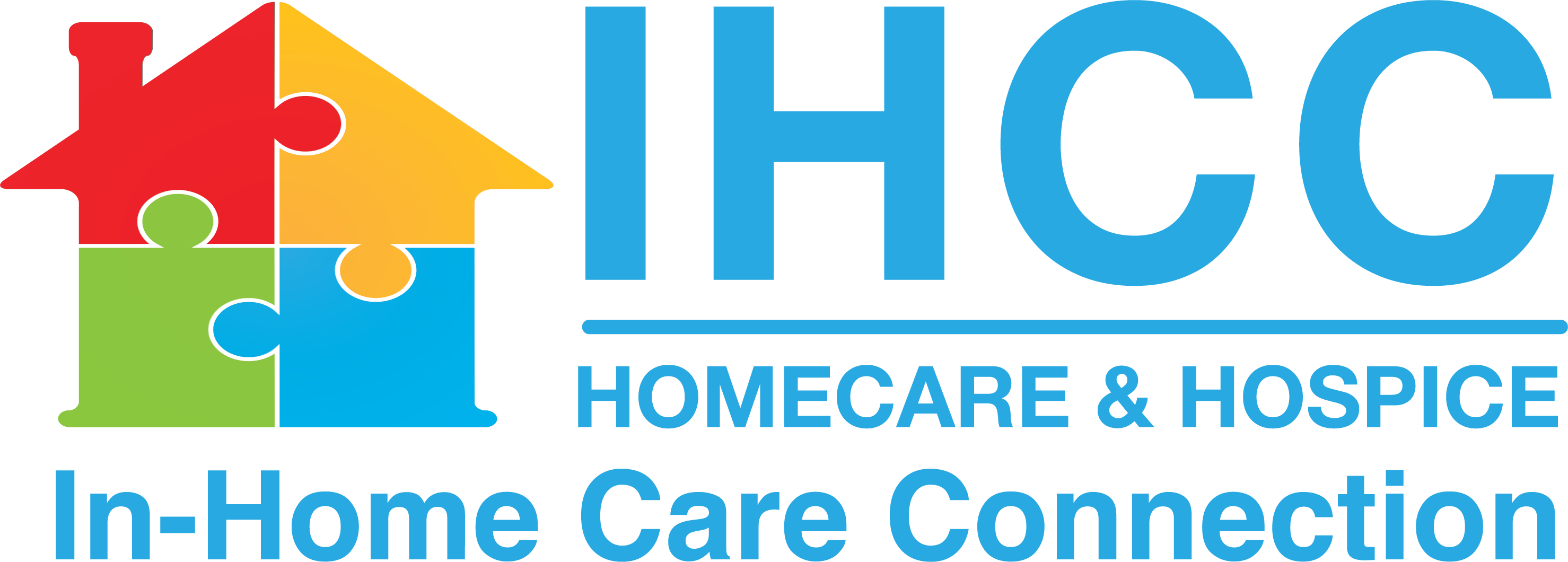Caring Connections
Helpful tips for family caregivers
September/October 2015
Sometimes it’s the little things that turn out to be important. For instance, does your loved one seem to have problems swallowing? If so, he or she may be at risk for choking. And then there are the big things, like the emotions of cancer. This month we help you tackle those issues. We also give you tips for getting “eyes and ears on the ground” when your loved one lives far away.
Help prevent choking
 Between 15% and 20% of seniors have trouble swallowing. Choking while eating or drinking is the fourth-leading cause of accidental death at home for people over age 65.
Between 15% and 20% of seniors have trouble swallowing. Choking while eating or drinking is the fourth-leading cause of accidental death at home for people over age 65.
Swallowing involves the coordination of many muscles in the mouth and throat. The action pushes chewed food down toward the stomach. At the same time, the throat needs to close off the windpipe to the lungs.
People with dentures or dental problems are at risk for choking because they can’t chew their food as well. People who have had a stroke or any health problem affecting the nerves and muscles around the neck are also at higher risk.
Signs of a swallowing problem include coughing after a swallow or a change in voice after a swallow. Some people with swallowing problems describe a feeling as if a pill has gotten stuck going down.
If your loved one seems to have swallowing problems, ask the doctor to order an evaluation. Speech therapists commonly do these evaluations and can help with special exercises and dietary suggestions.
Common causes of choking include
- eating too fast;
- taking big bites and not chewing food well;
- walking, talking, or laughing while eating;
- drinking alcohol before or during meals.
If the person you care for tends to choke, changing the habits listed above can certainly reduce the risk. Other techniques that can be helpful include
- sitting up straight during the meal and afterward;
- avoiding thick, sticky foods, such as peanut butter or caramel;
- changing medications that contribute to dry mouth;
- tucking the chin when swallowing.
The emotional side of cancer
Cancer doesn’t equal a death sentence these days. But it is a life-changing diagnosis that brings up many emotions for both the patient and the family.
At any point from diagnosis to life posttreatment, your loved one might feel
- sad or hopeless about ever feeling fully whole again or that the best of life is over;
- anxious or overwhelmed, wondering what is to come (pain? future recurrence?) or how to face all the decisions;
- guilty about being a burden and a drain;
- angry that life hasn’t been fair.
To support your relative, consider these strategies:
- Provide an outlet. “Mom, I can imagine you have a ton of different feelings. No matter what they are, I’m up for hearing about it. Sometimes it helps to just let your feelings out.”
- Respect privacy. Not everyone likes to talk about feelings. Writing in a journal, praying, or other means of expression may be more comfortable. A simple way to stay tuned in is a “scale of 0 to 10” approach. “Seems like it’s kind of a tough day. If 10 is really bad, where would you say you are today? A 7? A 9?”
- Learn what you can. Many worries can be resolved with information. Help identify the questions. Work with your relative’s care team to get the answers.
- Accentuate the positive. Focus attention on what your loved one can still do.
Encourage visits from friends who bring warmth and humor.
When to get professional help. It is time for help if your loved one is stuck in an extreme pattern, such as endless crying or profound withdrawal from usual activities. Other signs include trouble sleeping, intense fear, or talk of suicide. Contact the doctor for guidance.
Return to topTracking needs from a distance
When you live far away, it’s hard to know when your relative needs help. You need eyes and ears on the ground.
Assemble your team. Exchange contact information with several of your relative’s neighbors and friends. Encourage them to call if they notice changes or have concerns. Ideally, one of them might willingly handle simple things, like changing an overhead light bulb.
Find out about local services. Go to the Elder Care Locator.
Or save time and energy by hiring a care manager. A care manager can alert you to problems and recommend local services.
Keep in mind that help may be needed on multiple fronts.
- Finances: Are bills and other mail piling up? Are there shut-off notices? Perhaps your loved one is running low on funds. If not, consider automatic payments. Or arrange for someone to come write checks once a month.
- Food and meals: Has your relative lost weight unintentionally? If the doctor says there is no medical cause, and there are no dental problems, consider help with grocery shopping or home-delivered meals.
- Personal hygiene: If your loved one is not dressing or grooming as well as before, consider a doctor’s evaluation. Help may be needed to address issues of forgetfulness, incontinence, or problems with bathing.
- Household maintenance: It may be time for help with the big chores. If the house is uncharacteristically messy, a regular housekeeper may be in order. Also think about home safety issues, such as grab bars needed in the bathroom.
- Social/emotional isolation. If you cannot call regularly, consider a telephone check-in service or arrange for a friend, neighbor, or helper to drop by often. Support continued involvement in activities outside the home.
- Learn about local bus and van services for seniors. Also, volunteer programs that give rides to the doctor. Perhaps the church can coordinate rides to worship?




